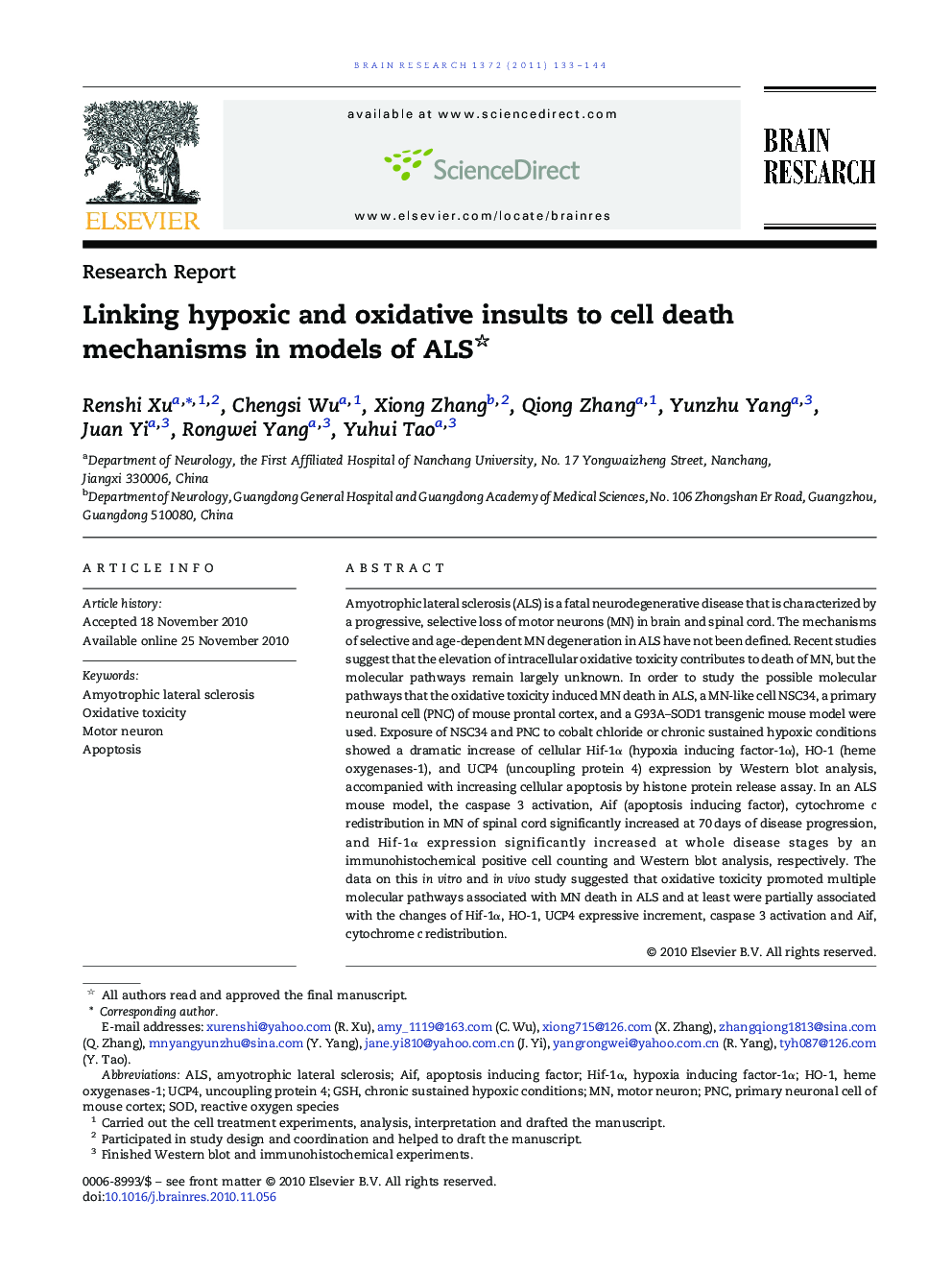| Article ID | Journal | Published Year | Pages | File Type |
|---|---|---|---|---|
| 6265189 | Brain Research | 2011 | 12 Pages |
Amyotrophic lateral sclerosis (ALS) is a fatal neurodegenerative disease that is characterized by a progressive, selective loss of motor neurons (MN) in brain and spinal cord. The mechanisms of selective and age-dependent MN degeneration in ALS have not been defined. Recent studies suggest that the elevation of intracellular oxidative toxicity contributes to death of MN, but the molecular pathways remain largely unknown. In order to study the possible molecular pathways that the oxidative toxicity induced MN death in ALS, a MN-like cell NSC34, a primary neuronal cell (PNC) of mouse prontal cortex, and a G93A-SOD1 transgenic mouse model were used. Exposure of NSC34 and PNC to cobalt chloride or chronic sustained hypoxic conditions showed a dramatic increase of cellular Hif-1α (hypoxia inducing factor-1α), HO-1 (heme oxygenases-1), and UCP4 (uncoupling protein 4) expression by Western blot analysis, accompanied with increasing cellular apoptosis by histone protein release assay. In an ALS mouse model, the caspase 3 activation, Aif (apoptosis inducing factor), cytochrome c redistribution in MN of spinal cord significantly increased at 70 days of disease progression, and Hif-1α expression significantly increased at whole disease stages by an immunohistochemical positive cell counting and Western blot analysis, respectively. The data on this in vitro and in vivo study suggested that oxidative toxicity promoted multiple molecular pathways associated with MN death in ALS and at least were partially associated with the changes of Hif-1α, HO-1, UCP4 expressive increment, caspase 3 activation and Aif, cytochrome c redistribution.
Research Highlights⺠Hypoxia promotes Hif-1α, HO-1, UCP4 increments contributing to MN apoptosis. ⺠Caspase 3 activation, Aif, cytochrome C redistribution increased at ALS onset. ⺠Hif-1α increments occurred at free, onset and progressive stages of ALS disease. ⺠These genes were associated with MN death activated by oxidative toxicity in ALS.
